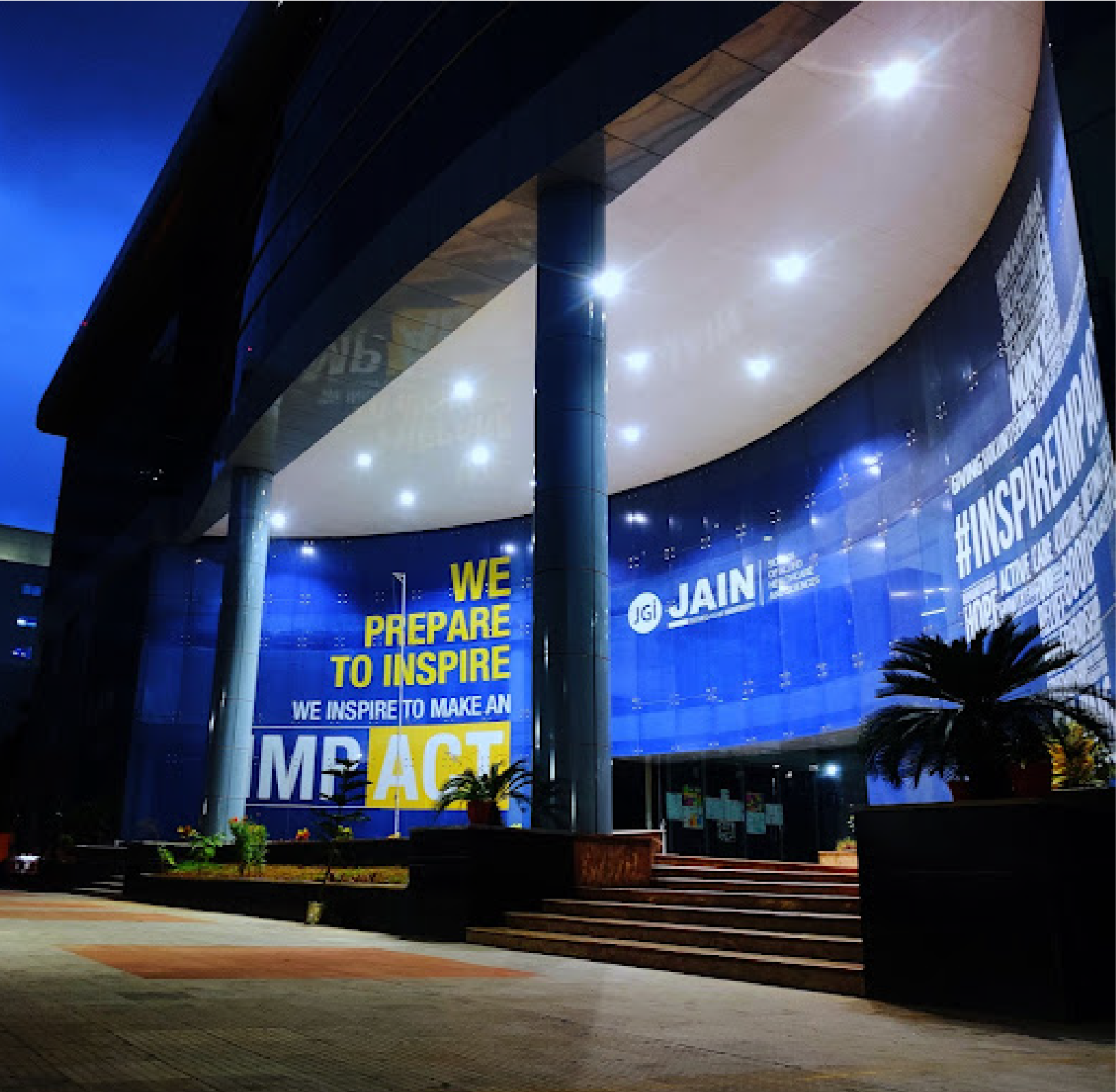B.Sc Nuclear Medicine Technology Eligibility:
The qualification for the B.Sc Nuclear Medicine Technology program is a pass with a minimum of 50% in their 10+2 examination from PUC/ICSE/CBS/A Level/US or an equivalent board, with mandatory subjects like Physics, Chemistry, Biology, and a passing grade in English and IB students having a minimum of 24 credits.
Contact us:
Phone Number: 9606978661, 6366828477
Email : sahs@jainuniversity.ac.in
Curriculum Structure:
The curriculum of the B.Sc Nuclear Medicine Technology is strategically structured to cover fundamental concepts in nuclear physics, radiopharmacy, radiation safety, and the utilisation of cutting-edge imaging modalities such as Single Photon Emission Computed Tomography (SPECT) and Positron Emission Tomography (PET). Students delve into the intricacies of radioisotope production, patient care, and the ethical considerations surrounding the application of nuclear medicine in healthcare.
Following is the elaborate Bsc Nuclear Medicine Technology syllabus:
| Semester |
Name of the subject
|
| Semester 1
|
- Anatomy -I
- Physiology -I
- Basic Physics & Medical Physics-I
- Computers & image processing in nuclear medicine
- Computer application
- English –I
|
| Semester 2
|
- Anatomy -II
- Physiology -II
- Basic Physics & Medical Physics-II
- Radiation Biology & Radiation Safety - Basic
- Legal Aspects of Healthcare
- English -II
|
| Semester 3
|
- Radiochemistry & Radiopharmacy -I
- Physics of Nuclear Medicine Technology - I
- Recent advances in Nuclear Medicine Technology
- Healthcare Administration
- Communicative English
- Environmental Science
|
| Semester 4
|
- Radiochemistry & Radiopharmacy -II
- Physics of Nuclear Medicine Technology - II
- Fundamentals of Imaging Modalities in Radiology
- Indian Constitution
|
| Semester 5
|
- Nuclear Medicine Techniques & Special Procedures -I
- Management of Patients in Nuclear Medicine
- Practical Nuclear Medicine Techniques & Special Procedures-I
- Quality assurance in Nuclear medicine
- Practical Quality assurance in Nuclear medicine
|
| Semester 6
|
- Nuclear Medicine Techniques & Special procedures -II
- Fundamentals of Molecular Imaging & Theranostics.
- Practical Nuclear Medicine Techniques and Special Procedures-II
- Radiation Biology & Radiation Safety in Nuclear Medicine - Advance
- Advanced Image Processing Techniques in Nuclear Medicine
|
| Semester 7 and Semester 8
|
- Internship / Research
- Project centric learning (PCL) and Mind management and human values (MMHV)
also provided as add-on courses.
|
Studies after B.Sc Nuclear Medicine Technology:
After completing a B.Sc Nuclear Medicine Technology program, graduates have various opportunities for career enhancement through specialised programs and certifications. Some of the career enhancement programs include:
Certification in Nuclear Medicine Technology (CNMT):
This certification, offered by organisations such as the Nuclear Medicine Technology Certification Board (NMTCB), validates the skills and knowledge acquired during the BSc program and enhances professional credibility.
Advanced Imaging Certifications:
Pursuing certifications in advanced imaging modalities like Positron Emission Tomography (PET) or Single Photon Emission Computed Tomography (SPECT) can broaden career opportunities and expertise in specific areas of nuclear medicine.
Radiopharmaceutical Production Training:
Specialised programs focusing on the production of radiopharmaceuticals provide valuable insights into the manufacturing processes involved, making graduates more versatile in the field.
Advanced Radiation Safety Training:
Enhancing knowledge in radiation safety through advanced courses ensures compliance with the latest safety standards and regulations, a crucial aspect of nuclear medicine practice.
Leadership and Management Courses:
Aspiring nuclear medicine professionals can benefit from courses in healthcare management and leadership, preparing them for supervisory or managerial roles within the field.
Master’s in Nuclear Medicine Technology or related fields:
Pursuing a master’s degree offers in-depth knowledge, research opportunities, and the potential for leadership roles in academia, research institutions, or healthcare organisations.
International Certifications:
Some professionals may choose to pursue certifications recognized internationally, enhancing their marketability and facilitating potential opportunities for global employment.
Clinical Research Programs:
For those interested in research, programs in clinical research methodology or participation in research projects can lead to advancements in both knowledge and career.
By actively seeking out these career enhancement programs, graduates of a BSc in Nuclear Medicine Technology can stay competitive, continuously expand their skill set, and position themselves for exciting and rewarding career advancements within the dynamic field of nuclear medicine.
Career Progression after pursuing B.Sc Nuclear Medicine Technology:
| Duration |
Roles and responsibilities
| Salary |
| 0-3 years
|
Junior Nuclear Medicine Technologist
|
₹2,00,000 - ₹4,00,000 per annum
|
| 3-5 years
|
Senior Nuclear Medicine Technologist or Imaging Technologist
|
₹4,00,000 - ₹6,00,000 per annum
|
| 5-10 years
|
Lead Nuclear Medicine Technologist, Supervisor, or Specialised Technologist
|
₹6,00,000 - ₹10,00,000 per annum
|
| 10 years and beyond
|
Department Head, Manager, or Senior Specialist in Nuclear Medicine
|
₹10,00,000 and above per annum
|
Please Note: As individuals gain experience and expertise in Nuclear Medicine Technology, they may take on more specialised roles, managerial positions, or move into education and research. Salaries can significantly increase with advanced certifications, additional qualifications, and leadership responsibilities.
Salaries can vary based on prevailing market dynamics and individual skill levels.


